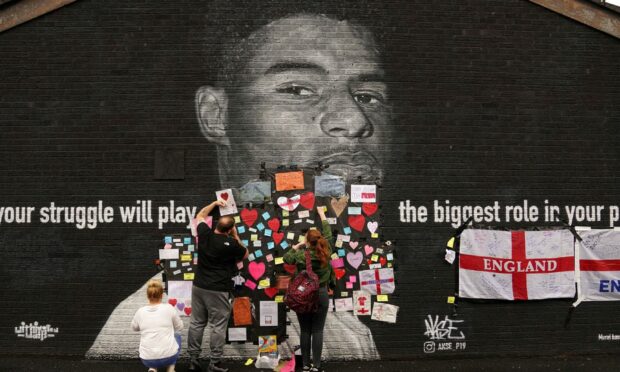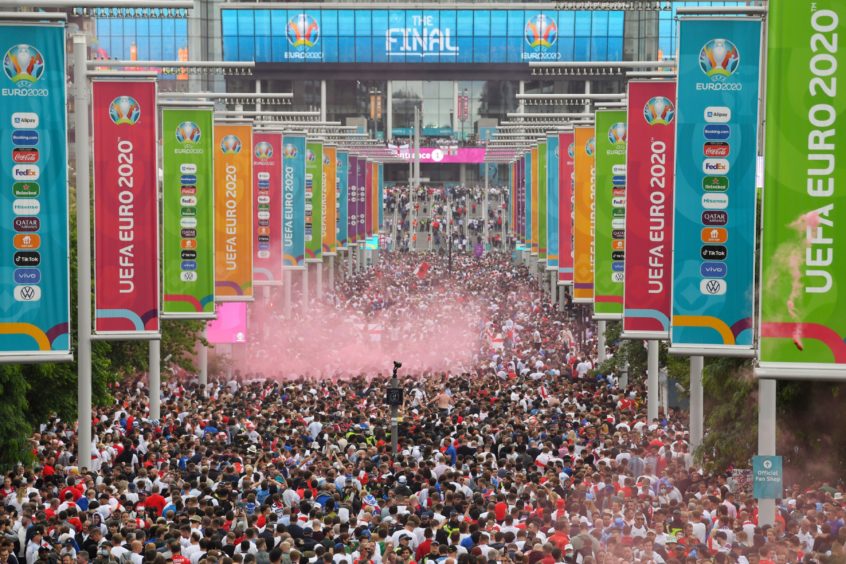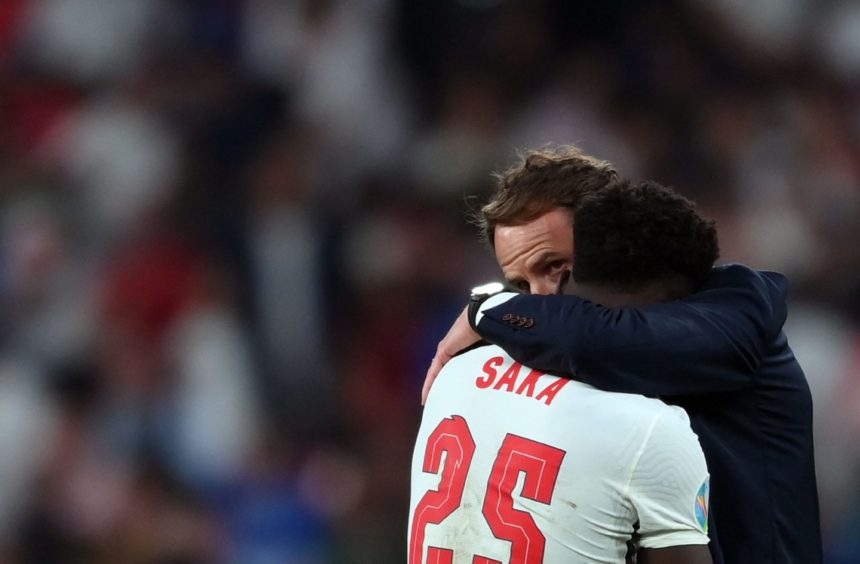It has been a hard few days of reckoning as a supporter of the England national team.
I’m not a card-carrying member of any fans’ group, simply an armchair backer who watches on from afar like many millions south of the border.
The pain of defeat in the Euro 2020 final was expected; regardless of Italy being the better side and deserving of the trophy, losing in that manner hurt.
But any emotion attached to the 120 minutes-plus of action has weirdly subsided, overtaken by depressingly predictable narratives which England claims to have distanced itself from.
Fans cramming themselves into Wembley Way, despite police requests to stay away unless ticketed for the game, predicated disaster. A kettle ready to boil over.
Consumption of alcohol and doubtless other substances in the build-up to the game, exposure of body parts and a flare being inserted about someone’s person. A video of the latter did the rounds in a couple of WhatsApp groups I’m in and the sad thing was none of this shocked me.
Then came the attempts to storm the ground. By several well-placed accounts, the game was woefully under-policed and left security staff literally fighting a losing battle.
Hoards of supporters storming barricades, hurrying up stadium stairs in a bid to rush to the supposed sanctuary of the stadium seats, hiding in plain sight. Stories have since emerged of people with tickets, including those supporting Italy, unable to take their seats due to the unruly, immoveable invaders.
We witnessed this and I stepped away just in time. If this is even crossing your mind, don’t. You don’t get far. Please don’t ruin it for everyone at Wembley. pic.twitter.com/CoNx4U4CHb
— Michelle Owen (@MichelleOwen7) July 11, 2021
These images and videos will rightly be circulated, poured over, criticised. How on earth can a country, which has aspirations of hosting the 2030 World Cup, have a leg to stand on when this is the behaviour showcased upon being given a taste of the host experience?
The potential for a crush in the stadium, with areas packed with too many people, harks back to a dark, horrifying age of English football. One which brought the most catastrophic of consequences, but could just as well have happened again.
Then came the racial abuse of Marcus Rashford, Jadon Sancho and Bukayo Saka. Three young men who stood in front of the watching world to take a penalty for their country in the biggest game of their lives.
The fact they missed gave reason to some to abuse them because of the colour of their skin.
Rashford, who has fought for so many social justice causes, from child poverty to literacy.
Sancho, who helped create football pitches in south London for young children to use and who England fans had been clamouring for during the tournament.
Saka, a 19-year-old who enjoyed a breakout competition and was one of England’s brightest sparks.
It was grimly predictable. It has happened before and will probably do so again. All should have been allowed time and privacy to melt away from public conscience for a while in the aftermath of the game. Instead they have had to tackle ugly, abhorrent acts in what can only be described as incredibly moving ways.
The rallying around these players, by their team-mates, manager and right-thinking members of the public, is heartening. The cover-up of the vandalism of the mural of Rashford in his home town of Withington, post-it notes of positivity eliminating the bile, has to be one of the images of the year.
— Jadon Sancho (@Sanchooo10) July 14, 2021
This is a team that has made great strides in the last four years and, while it fell short at the end, has generated huge amounts of positivity. The courage of convictions to speak out on social issues, when players of squads past would likely straight-bat any questions on such matters, is a huge stride in the right direction.
The hooligan pictorial of English supporters, thought to have been condemned to the past, keeps rearing its head like a vitriolic game of Whack-A-Mole, determined to overthrow this new positivity.
Harry Kane called it right in saying “we don’t want you” to these supposed supporters. It has to stop.












